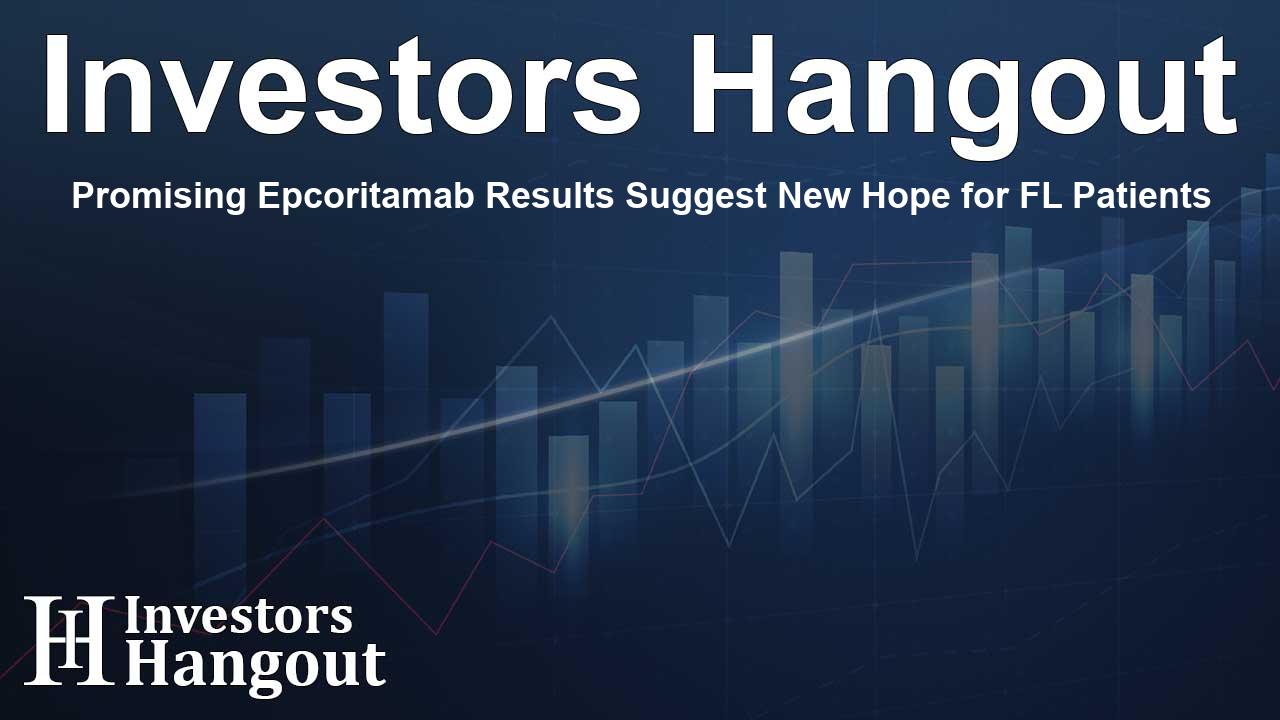Promising Epcoritamab Results Suggest New Hope for FL Patients

Promising Clinical Trial Results for Epcoritamab
Epcoritamab, a T-cell engaging bispecific antibody developed by Genmab, has shown remarkable potential in treating adult patients with relapsed or refractory follicular lymphoma (FL). Recent data from the Phase 1b/2 EPCORE NHL-2 trial have delivered encouraging news, revealing an impressive overall response rate (ORR) of 96 percent. Among the participants, 87 percent achieved a complete response (CR), and an estimated 80 percent reported 21-month progression-free survival (PFS).
Long-Term Efficacy and Survival Rates
The long-term follow-up results from the study illustrate the therapy's durability. An estimated two-year overall survival (OS) rate stands at an impressive 90 percent, suggesting that epcoritamab combined with lenalidomide and rituximab can significantly improve outcomes for patients facing the challenges of FL. This combination therapy has been observed to offer hope to those with limited treatment options.
Breakthrough Therapy Designation
The promising results have contributed to the U.S. Food and Drug Administration's (FDA) recent grant of breakthrough therapy designation for epcoritamab plus the standard regimen of R2 for adult patients in the U.S. who have undergone at least one prior treatment line. This designation recognizes the drug's potential to provide substantial improvements over existing therapies.
Insights from Medical Experts
Dr. Lorenzo Falchi, a lymphoma specialist at Memorial Sloan Kettering Cancer Center, emphasized the importance of these findings, noting that follicular lymphoma remains challenging to treat, particularly for those with high-risk features. He stated, "The durable responses seen in the EPCORE NHL-2 trial are encouraging and strengthen the case for ongoing research into epcoritamab in conjunction with the standard regimen of rituximab plus lenalidomide."
Patient Trials and COVID-19 Complications
Throughout the trial, 57 percent of participants experienced COVID-19, impacting the treatment protocol and leading to discontinuation in 13 percent of the cases. The adverse effects were monitored closely, with neutropenia and cytokine release syndrome (CRS) as the most frequent treatment-emergent adverse events (TEAEs). Thankfully, all CRS cases resolved, indicating manageable side effects.
Challenges with Follicular Lymphoma
FL tends to be an indolent form of non-Hodgkin's lymphoma and accounts for 20-30 percent of all NHL cases. Currently, about 15,000 individuals are diagnosed with FL annually in the U.S. The illness is often considered incurable with existing treatments, necessitating novel approaches like epcoritamab. Prolonged treatment efforts often lead to shorter remission durations, highlighting the critical need for more effective therapies.
Ongoing Studies and Future Directions
The EPCORE NHL-2 trial is structured in two phases; the first focuses on dose escalation, while the second assesses preliminary efficacy. Epcoritamab's future seems promising as its ability to engage T-cells and target CD20+ cells could lead to new treatment paradigms for patients with various B-cell malignancies.
Genmab's Commitment to Innovation
Genmab’s dedication to advancing cancer treatments is underscored by its commitment to developing epcoritamab as a core therapy for multiple B-cell malignancies. The drug is currently in several clinical trials, providing crucial data that may shape future therapies for relapsed or refractory patients.
Frequently Asked Questions
What is the EPCORE NHL-2 trial?
The EPCORE NHL-2 trial evaluates the safety and efficacy of epcoritamab in combination with standard therapies for patients with relapsed or refractory follicular lymphoma.
What are the main results of the trial?
The trial reported a 96% overall response rate and an 87% complete response rate among participants, indicating strong efficacy for the therapy.
What kind of treatment does epcoritamab involve?
Epcoritamab is a bispecific antibody combined with lenalidomide and rituximab, designed to improve the immune response against cancer cells.
What are the implications of the breakthrough therapy designation?
This designation accelerates the development and review of epcoritamab, ultimately leading to faster access for patients who need it.
How does Genmab contribute to innovative cancer therapies?
Genmab focuses on developing next-generation antibody therapeutics that improve outcomes for patients with various forms of cancer through cutting-edge technology.
About The Author
Contact Lucas Young privately here. Or send an email with ATTN: Lucas Young as the subject to contact@investorshangout.com.
About Investors Hangout
Investors Hangout is a leading online stock forum for financial discussion and learning, offering a wide range of free tools and resources. It draws in traders of all levels, who exchange market knowledge, investigate trading tactics, and keep an eye on industry developments in real time. Featuring financial articles, stock message boards, quotes, charts, company profiles, and live news updates. Through cooperative learning and a wealth of informational resources, it helps users from novices creating their first portfolios to experts honing their techniques. Join Investors Hangout today: https://investorshangout.com/
The content of this article is based on factual, publicly available information and does not represent legal, financial, or investment advice. Investors Hangout does not offer financial advice, and the author is not a licensed financial advisor. Consult a qualified advisor before making any financial or investment decisions based on this article. This article should not be considered advice to purchase, sell, or hold any securities or other investments. If any of the material provided here is inaccurate, please contact us for corrections.
